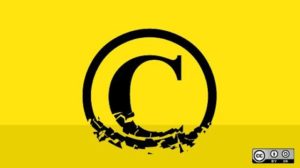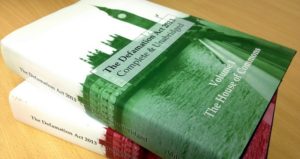Blogging and the Law
For many people blogging is a fun pastime, for others it’s a serious business. Blogs can be used for an infinite number of reasons; for business purposes, for journalistic endeavours, for documenting one's activities, or even just simply for the writer’s enjoyment. It’s a major activity on the internet with 77% of internet users reading them and 6.7 million bloggers out there writing them. But what many bloggers don’t realise is the legal implications to writing a blog.
The Internet has often been referred to a ‘wild west’ and more recently an ‘ethical vacuum’ when it comes to regulation. Due to the sheer scale and global nature of the internet there is great difficulty policing content and law across the web. That is not to say the internet is completely lawless and that there are no attempts to police it though.
Content on the internet is still subject to UK laws regarding copyright, IP, defamation and libel as well as many others. However, the laws are often ill-defined and ever changing though. This stuff can get pretty confusing, so here’s a quick primer to give you a heads up on some of the laws that apply.
Copyright & IP Law

Copyright Law aims to prevent the unlawful duplication of work and applies to written articles, music, photos and other forms of media. It applies when any idea or work becomes tangible, for instance an article only becomes copyrighted when it is written, not when it is just words in the authors head. Simply put, copyright law means you can’t steal someone elses work and use it as your own.
Cookies

Cookies are text files that contain a little bit of data that help websites work. They can tell the website if users have visited the site before and can store information and data that can help the site tailor itself to the user. There’s often a big misunderstanding about what cookies do, and, due to the confusing EU Cookie Directive, how they are allowed to be used. This legislation only applies to companies, so if you are an individual blogger operating an independent site then the following doesn’t apply to you.
Libel & Defamation

Libel and defamation is when inaccurate information is written that reduces the reputation of a person in the eyes of the public. There are many factors that are taken into account when deciding whether something is libellous. First the comments must harm the reputation of the individual, simply hurtful and insulting comments do not fall under the remit of defamation.
Another factor is how widespread the comment is. Newspapers and tabloids are at great risk of defamation suits as they are both well-read and respected, a blog with only three readers is much less so. There is also the question of intent, that has to be taken into account, a comment is not defamatory if it is deemed to be in the public interest.
If you are a large charity running a blog then you must be wary of being libellous as you will likely be well read and respected. Libel and defamation doesn’t just apply to blogs either, but to social networks and micro-blogging sites, as Lord MacAlpine proved in 2012.
Following a BBC Newsnight report about allegations of an unnamed senior Conservative being part of the North Wales child abuse scandal there was much speculation on social media sites of who the offending party was. Rumours began that it was Lord McAlpine, which were later proven to be untrue.
McAlpine decided that this was a case of widespread defamation and threatened to sue not only Twitter but every single user who spread and retweeted the false allegations. He eventually decided not to follow through with this threat, but instead started legal proceedings against Sally Bercow – the wife of Commons Speaker John Bercow – who tweeted “Why is Lord McAlpine trending? *Innocent Face*”.
This was ruled as being libellous by Mr Justice Tugendhat who said that although many might see the tweet as a simple question, the denotation of the “innocent face” showed the question to be ironic and defamatory. McAlpine was awarded an undisclosed amount of damages
This is just a taster of some of the main laws governing publishing on the web. While this article doesn’t cover everything you need to know, by knowing about these laws you’re a step ahead of most other bloggers. If you want more information checkout the Intellectual Property Office, the BBC’s guide on libel. You can also send us messages on Twitter @reasondigital or send us an email at hello@reasondigital.com
